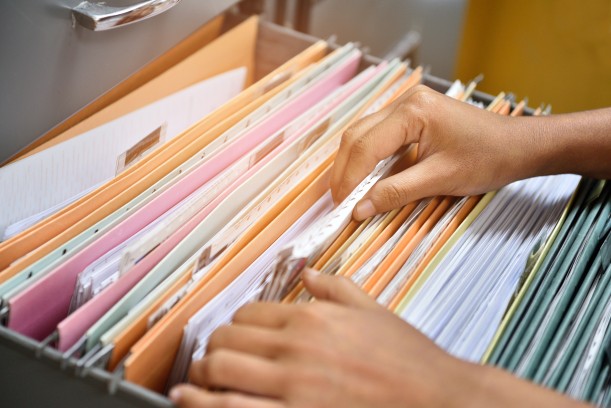Keeping Public Records Open To The Public

(Shutterstock)
It may not be as riveting as some headlines recently, but there weren’t many more important:
“Judge rules for news nonprofit” told the story of Lancaster County District Judge Ryan Post’s ruling in favor of the Flatwater Free Press, a nonprofit news organization, suing the Nebraska Department of Environment and Energy over a $44,000 bill for public records.
The case centered on a public records request related to nitrates and drinking water. Law dictates that a government agency can impose reasonable charges for copies and some labor involved in producing documents.
In the Flatwater case, an initial request produced a not-insignificant estimate of $2,000. Flatwater narrowed the search to trim expenses, but the second estimate came in at a whopping $44,000 after the NDEE layered in attorney fees to review all documents.
Post ruled, rightly, that such fees go beyond the intent of public records law, law which is designed to benefit the public by making government more transparent and more accountable.
Media outlets and free press advocates hailed the victory. Flatwater Free Press Executive Director Matt Wynn told the Courthouse News the decision was “fabulous. ... We could not have asked for a better ruling.”
But the real winners are the public. These are, after all, “public” records, not “media” records. The same laws that protect access to public business via public documents also allow the public to have access to information.
Even with the ruling, public records requests can still, depending on their scope, run into the hundreds or thousands of dollars. A request from Journal Star reporter Chris Dunker for communications and other documents over three days in the summer of 2020 came back with a cost of $95,000 and would have taken 8 to 12 months.
Post’s ruling still gives agencies much latitude in estimating costs, which can have a chilling effect on requests.
The answer, beyond this decision, is a more organized -- even codified -- approach to public records questions. Just as it established open records and public meeting laws, it’s within the Legislature’s purview to bring more structure and uniformity to the state’s process, to require a custodian or point of contact for requests and a more specific list of acceptable charges and rates. A centralized website -- FOIAonline.gov -- hasn’t fixed the problem entirely at federal level, but it has streamlined it in some cases.
There should be a consistent and predictable process for the public, or the media on its behalf, to have access to the work product of the public’s tax dollars. Public records belong to the public.
This editorial first appeared in the Lincoln Journal Star, February 21, 2023. It was distributed by The Associated Press.
Opinions expressed by columnists in The Daily Record are not necessarily those of its management or staff, and do not constitute an endorsement or recommendation. Any errors or omissions should be called to our attention so that they may be corrected. Contact us at news@omahadailyrecord.com.
Category:
User login
Omaha Daily Record
The Daily Record
222 South 72nd Street, Suite 302
Omaha, Nebraska
68114
United States
Tele (402) 345-1303
Fax (402) 345-2351




